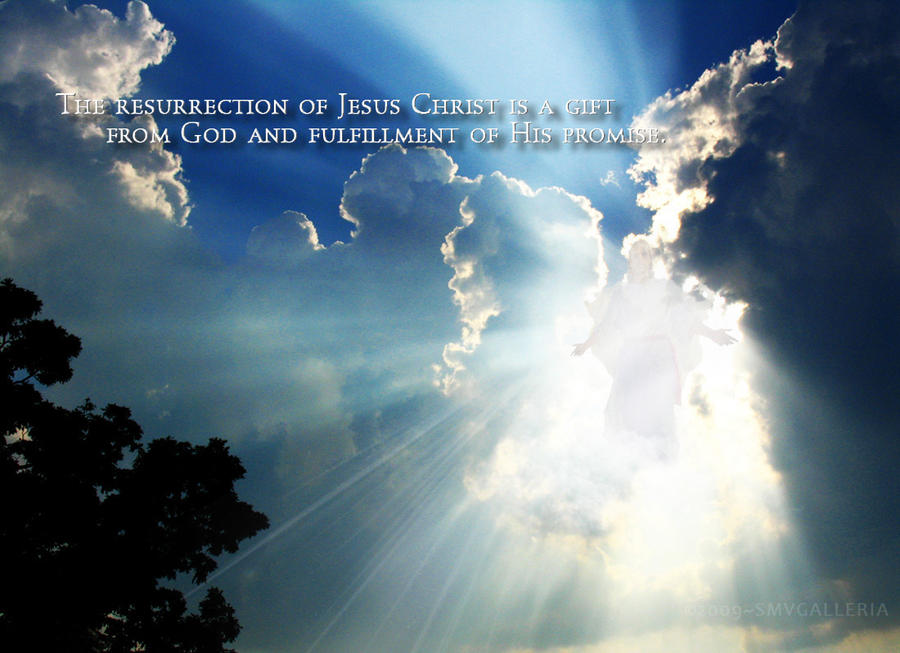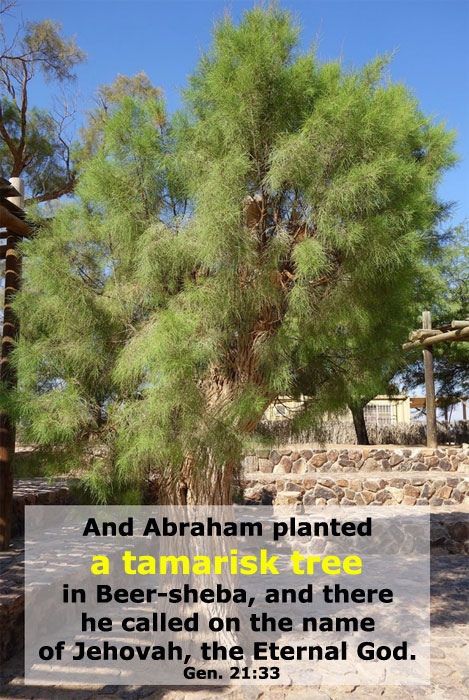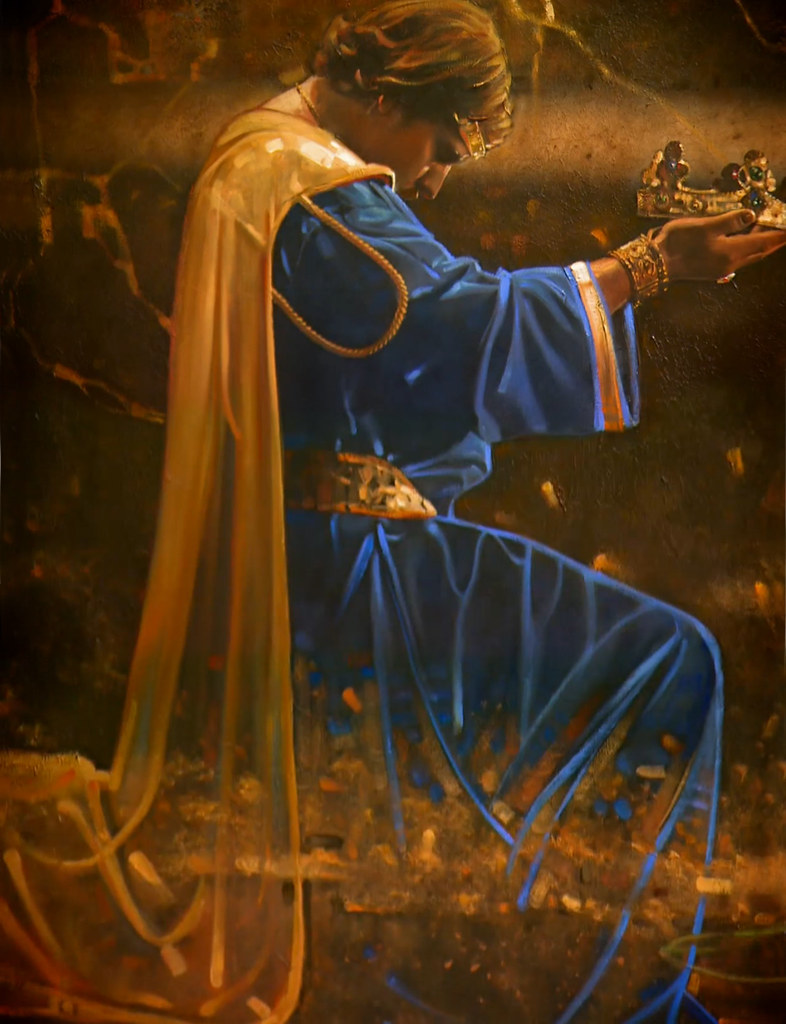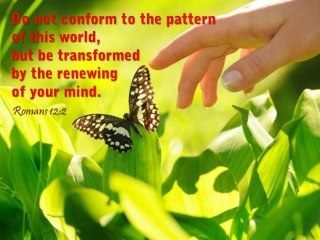(Written by Sheila Gail Landgraf)
We have been talking a lot about The Holy Days
of God. I wish to spend the next few days pondering the Hebraic
celebration of Early First Fruits, the day that many begin counting the 50 days
of the omer while waiting on Pentecost. This is how the ancients knew the
day. They did not look at a calendar or ask Google as we do today; they counted
the omer.
Have you ever considered this practice or pondered the wisdom of these
days? The idea of counting each day represents spiritual preparation and
anticipation for the giving of the Torah. It is how the people
traditionally prepared their hearts for God to reveal things to them.
The most important thing to remember about Passover is that Early First Fruits
represented the resurrection of Christ. Early First Fruits is celebrated
on the second day of The Seven Days of Unleavened Bread; three days after the
Passover Seder. It is one of the seven days of Unleavened Bread during
the Passover season. The three days (Passover plus the first two days of
Unleavened Bread) represent the time of Christ in the grave. On Early
First Fruits He is risen! The Passover Seder tells in symbols of how
Jesus died, was buried and rose on the third day. Hence, it is very
important that a family observe the Passover to understand all the details of
the history of the people that God used to bring us Messiah and to understand
how everything that God did with them led to the sacrifice of the Messiah in our
place.

There is
more to the progression of this victory. The proof was in the
Resurrection of Christ. This is what Early First Fruits symbolizes; the
Resurrection. The barley loaf that is waived on Early First Fruits is
symbolic of Jesus and how He was resurrected a victorious Savior of the the
World. He was the "first" of a full harvest for The Kingdom of
God. This is what one must understand in order to understand the further
progression, the giving of the Holy Spirit of God to His people on Pentecost.
The first miracle of Pentecost was with Moses
when God gave the Torah. The Holy Spirit is the personification of the
Torah living in God's people. God told the people to count from Passover
to Pentecost from the offering of the early first fruits sheaf of barley grain.
They counted 50 days and that brought them to the day that the wheat
harvest was ready to be offered. The wheat harvest was the larger crop,
the most valuable crop of the year. If the barley crop was good and the
wave sheaf was offered first at early first fruits, the latter first fruits
offering of the wheat crop would be abundant! The symbolism is that Jesus
was our early first fruit offering, and we are the latter first fruit offering.
These offerings are brought into the storehouse of God and The Kingdom of
God thrives!
You start counting the 50 days on the day of the early first fruits offering.
That is how you know which day is going to be Pentecost.
This is an ancient custom and a very old tradition of Israel. Knowing
this, I want to simply contemplate the reasons and the original purpose for the
custom of "counting the Omer."
The first thought that comes to mind is that this practice, done properly,
(without the intention of using it for self gain or magic) helps us to grow as
individuals. The fifty days are days that we should be meditating on our
purpose and our growth before God.
It has been noted by some that the formula for
staying young is to always continue growing. Losing that capacity to
continue growing at any age is tragic. Yet, when you stop to think about
it, any time we are not growing and changing, we are not living; we are just
existing. The proper counting of the omer is actually about moving to a
spiritual place that is higher than "just existing." It is looking
forward to what God is going to do next with us. It is NOT the practice
of elevating ourselves, but it IS the process of letting God work inside of us
to bring us to a better plane of existence in our lives in His Kingdom.
I love this often misquoted passage of scripture found in Genesis 24:1:
"Abraham was old; he came with his
days"
"He came with his days" informs us that Abraham used each of his days
to the fullest extent. At the end of his life, he came to old age
"with all his days" in hand. No day was without its own unique
growth. In other words, Abraham had something to show for all his days
of living. He had produced spiritual fruit from the labor of his soul on
this earth. This is what we hope to achieve in the counting of the omer;
to number our days for the goodness of God's Kingdom in our lives.
This all sounds great, but it isn't always easy. Some people do not want
to move any further spiritually than reaching the place of knowing there is a
Messiah, believing in Him and receiving and enjoying the gift of salvation.
Salvation is, after all, the greatest gift ever given and by all means
the most important gift.
It surprises many to learn that fact that there are even more gifts! Why
is this such a surprise and so hard to understand? When you married your
husband, did your life end with the marriage on your wedding day, or was that
day only the beginning? There is so much more! God is such a giver!
Going further with God is a choice we all have to make for ourselves.
Do we want to stay warm and cozy with all we have already attained
through the granting of the greatest gift, or do we want to keep moving on into
even more adventures with God? Salvation is an awesome, most important
gift, and it is free for the taking, but if you value it, you will more than
likely also value another gift called sanctification. Sanctification can
only come after Salvation.
Unlike salvation, sanctification is not free. Salvation required no
effort on our part. Sanctification does. Jesus gives us both gifts;
salvation and sanctification. It is only Him working inside of us that
make either gift possible. His blood is ALL that makes us holy before
God. Make no mistake that it is His blood that saves us and only His
blood that makes us holy before God. None of our own works will ever
attain our salvation or sanctification. Our own efforts are like filthy
rags, but that doesn't mean that we should not make an effort.
God desires for us to want to be holy like Him. Sanctification will cost
you your attitude! You will have to surrender your will
and succumb to the will and nature of God. God wants us
to turn from the old man and begin to be the new man. This process;
the time of being made new after salvation is called sanctification.
Once we are covered with the blood of Jesus, this process becomes possible.
It is impossible without the blood of Jesus. Please hear me out on
this; once we have been saved, it is sanctification that makes new life begin
in us. Growing closer to God through sanctification increases the working
of God's Holy Spirit that resides inside our soul. Sanctification is how
God transforms us from the old person we were to the new person He actually
created us to be. It is again, like a harvesting. A seed must die
to itself, be buried in the ground and endure until the sun and water and
nutrients that make it grow do their work. We are counting the omer
during this time of lying dormant, the time that is unseen, the time that the
little seed becomes a small plant and begins to push itself to the surface and
come into the world a new plant.
Some of us are afraid of walking down this path of sanctification and new
growth. We are often afraid of failure, but we must continuously keep in
mind that we are covered by the blood of Jesus. We must remember the fact
that His blood is so righteous that it cannot fail. So many people are
afraid of failing in life that they refuse to ever start to live. How
ironic! This is so sad. It causes people to settle for dust when
they could obtain pure gold.
Setting too lofty and unattainable goals is often the biggest reason people fail.
When we set our goals too high and too soon, we inevitably fall short and get
discouraged. Things are easier and less frustrating if you take them one day at
a time. This is the method used in “counting the omer.” This is how God
teaches us to be holy; one day at a time, one life experience at a time.
Each lesson builds as we go through the 50 days meditating on God's
nature and determining to imitate Him as best we can.
We are told
in the scriptures to count the 49 days between Passover and Shavuot (Pentecost)
beginning on the day of Early First Fruits and ending on The Day of Pentecost.
Like most events in life we tend to be more
aware of the beginning and the end, but it is the part in the middle that is
required to bring about true and lasting transformation. Therefore the counting
of the days from Passover to Pentecost is very much an effort in which THE
PROCESS is in and of itself of great value.

Counting
the omer is how we learn to "number" our days. The word for
"number" in Hebrew is “mispar.” Its root is closely related to our
English word for "story" ― “sipur.” Can you see the relationship
between the two?
A collection of events (or days) becomes a story ― as opposed to a random anthology
of events. Each day builds on the day before as we go along creating God's
story for each of us. You will have a beginning in which the characters
are introduced, a middle in which conflict takes place, and an end in which
there is resolution. There is a full story eventually, but it happens, unfolds
and builds in increments of time.
Unfortunately today our lives flow by so quickly that we frequently lose
awareness of the awesome power of our own stories. The metamorphosis of today
into tomorrow is subtle enough for us to lose consciousness of time, how it
began, what lay in the middle and how it all ends. The commandment to
count each day after we have experienced a "passing over" teaches us
mindfulness. It re-opens our hearts to hearing stories. The stories
of God help us to count out the days of our lives, showing us how to live in
each moment. From Passover to Pentecost there are two stories which are
intertwined. One is the story of a transformation of a people who at Passover
become physically free into a people who at Shavuot become spiritually free.
The Passover story tells us of the day the People of God left Egypt. This
was a day in which they rejected the Egyptian definition of what their lives
would hold. They learned through the power of God they were free to be
exactly who they truly were created to be.
But they did not yet know their own stories.
It was only when they received the Torah that they found the channels that
could give their souls expression. Always with the onslaught of total
freedom comes a process of learning. It is unexpected, but it always
shows up. It is through the learning process that the people of God
learned the mechanics of meeting those real challenges they faced in the
wilderness, challenges that were genuine and enduring. We each face our
own wilderness circumstances and we each have our own challenges in this life.
Through this process of living out time day-to-day the stories of the
people of God in the wilderness began to evolve. Without this process of
time and learning they would have simply remained slaves forever. There
would have been no stories to tell. Salvation brings us life and freedom.
Sanctification gives our life stories.
By living through the time of transition (in the
wilderness) The Israelites evolved into a people that would be used by God.
All evolution eventually involves
change. God gave the people the ritual of the early first fruits
sacrifice to follow so they would recognize this. Even this ritual
defining the time of year for them reflected change. The sacrifice that
was offered on Passover was made out of barley. In ancient times, barley
was used as fodder for animals. The sacrifice that was offered on
Pentecost was made of wheat. Wheat is often used as an allegory for the
human capacity of intelligence. While an animal can eat a fruit or a leaf
(the early sacrifice), it requires human intelligence and creativity to make
bread (the later sacrifice.) This pictures the growing process from the
sacrifice of early first fruits to the sacrifice of latter first fruits.
Here in this process of time from the Passover
and leaving Egypt until arriving in the promised land and eventually
experiencing Pentecost, we begin to see the amazing transformation of God's
people from a people who are defined by the strife and yearnings of the sort of
freedom shared by animals; to the freedom of becoming truly evolved human
beings. The time between Passover and Pentecost and the counting of the
omer is all about transformation and progression to a higher form of life.
God desires that we have this gift!
Only God can bring about our transformation!
Left to ourselves we would remain depraved
animals. God has a way of transforming us if we let him. Upon
leaving Egypt, those who were transformed had to be obedient in putting the
blood of the lamb over their door posts. This was the first step to total
freedom yet they hardly noticed what they were doing; they were simply acting
in faith and obedience. Sometimes the transformation from slavery to
freedom is gradual and unnoticed as time marches on and on, but it happens
when we are obedient enough to trust God and let it happen.
What makes us truly human? Some think it is the
bond that we share with God that makes us human beings. These bonds are
called "sefirot," a name which also has the same root word as
"number" and "story." This common root conveys the fact
that our beginnings, middles and ends are ultimately measured and finite, but
nonetheless our time is touched by the infinite spark of godliness within us.
The earliest mention of this concept is presented in the Kabbalistic work
called Sefer Yetzirah, literally; the "Book of Formation." This
book has been attributed to Abraham by the sages of old.
Do you know or understand that some
Kabbalistic work evolved from Abraham? It was a long time before I
discovered this fact. The very word Kabbala sounded very spooky and
strange to me. I avoided it. Most of the time it is still strange
and spooky! This is one of those times to discern what is scriptural from
what has been added to scripture. Be careful where you go, especially
with mystic Kabbalistic teachings. Because of this, it took me some time
to come around to the truth of counting the omer.
I thought about the fact that God
attributed righteousness to Abraham. Maybe he (Abraham) knew
something that I had not yet thought of and I began to study the parts of the
puzzle in Kabbalistic thinking that were attributed to Abraham only.
Hmmmm..... Be careful though not to be mislead. Do not to mix
the interest in biblical Hebrew roots with the wrong kind of Kabbala that
practices magic and sorcery. Magic and sorcery are an abomination to God!
Abraham did not participate in such things.
Over the years what Abraham knew has been
perverted by greedy and ungodly men using and twisting the knowledge for their
own selfish reasons. Abraham would not have been mixed up with or
participated in any type of sorcery, magic or idol worship. He was
strongly opposed to the occult and idol worship; which is where all of the
wrong types of Kabbala perversions lead. That is why I probably will not
even call what I am referring to here Kabbala; because it is not a part of such
things, but biblical in nature and follows the scriptures.
I am simply referring to the study of the nature
of God and how it works in our lives when we recognize and count the days
between Passover and Pentecost. God was the One who commanded that we do
this. There are those who take this practice to an extreme who do not
even believe in God. That is not at all what I am talking about.
My only reason for considering the practice of
counting the omer at all is because of God's commandment to Abraham, Moses and
others in the bible. The scriptures clearly spell out that we should
count the days up to 50 days, beginning with Passover on the Day of Early First
Fruits in order to know when Pentecost will arrive.
There are over a thousand commentaries on
Sefer Yetzirah. It remains one of the most fascinating Jewish works on
the nature of God. The thing I love about it is that it helps me to know
more of The Father. In the 1500s, Rabbi Yitzhak Luria, a mystic from
Egypt, settled in Safed. He was known widely by the acrostic of his name
as the Ari (literally "the Lion"). He taught the most
enigmatic sections of Kabbalah to a select group of disciples.
Subsequently, the mystic teachings of Judaism became far more accessible than
they had ever been in the past. Those who knew the commandment to
"count the days" could now begin to understand "why" they
were counting the days. Understanding is the birth of wisdom.
Always remember to chew up the meat and spit out the bones, or in other words
weigh the wisdom written down by men against the scriptures as you go along in
order to stay pure to God's will.
The most central theme of this Rabbi's teachings
is the significance of gaining an awareness of the bond that we share with
God. He calls this the "sefirot" of our spiritual souls.
It has been determined that there are seven
aspects of godliness that can be displayed by human beings:
1) Chesed - which means loving kindness
2) Gevurah - which means justice and discipline
3) Tiferet - which means harmony and compassion
4) Netzach - which means endurance
5) Hod - which means gratitude and humility
6) Yesod - which means foundation and bonding
7) Malchut - which means kingship,
leadership and sovereignty.
These attributes of God are taught in the
scriptures. They are the things that one should meditate on in the days
of counting the omer.
I find it wonderful to see and know that the
commandment which summed up all commandments - "Love the Lord your God with
all your heart, soul and mind and love your neighbor as yourself" is the
first commandment mentioned and taught in the counting of the omer. All
other things build upon this one commandment. This commandment describes
the state called "chesed." It seems if we don't get this
"love" part of life - we miss out on everything else
altogether. It is the first aspect of godliness that is taught as we
begin to count the days. It is our first thought toward developing
holiness in our day to day lives.
Another favorite of mine is aspect number
five which represents gratitude and humility - as the past ten years of life
for me have been full of the recognition that gratitude and humility are two of
the truest forms of worship.
It is also noted in these teachings leading
through the counting of the days till Pentecost that at the root of all forms
of enslavement (thinking of the Israelites in Egypt as well as our own
enslavement to sin), is a distortion of these attributes of God's nature.
If we are not careful with our humanness, we will distort these things of God
and defeat the learning. We must beware and stay pure to the original
meanings.
Each of the seven weeks between Passover and
Shavuot is dedicated to examining and refining one of these seven aspects of
godliness and different combinations of each of them together.
There is something in our nature that can reach
higher and learn more and be transformed for each day that we are faithful to
counting the omer. It is not at all about the salvation we have already
been freely given; but it is about the sanctification process, a way of letting
God sift and shape and transform our natures into what He originally created us
to be now that we ARE saved. It is about achieving our fullest destiny before
God
The counting happens in its set time every year
between Early First Fruits and The Day of Pentecost. Each season is
compounded upon another until, hopefully, like Abraham; we grow old and we come
before God with our own days. Let us learn to make each one count
for God's Kingdom.
As we dwell on these qualities of a godly person
during the seven weeks between Passover and Pentecost our own stories and
purposes begin to unfold a little further each day. If we let God work in
this time He will enlighten us with more of the stories of our own destiny and
purpose He created. It is through knowing the bond that we share
with God, through The indwelling of The Holy Spirit and the blood of The Lamb
from Our Savior Jesus Christ, that we are transformed and begin to grow spiritually.
So, dear friends, I pray that God will lead and
teach each of us as we go through this season of numbering our days after we
reach the time of Early First Fruit in the season of Passover.















